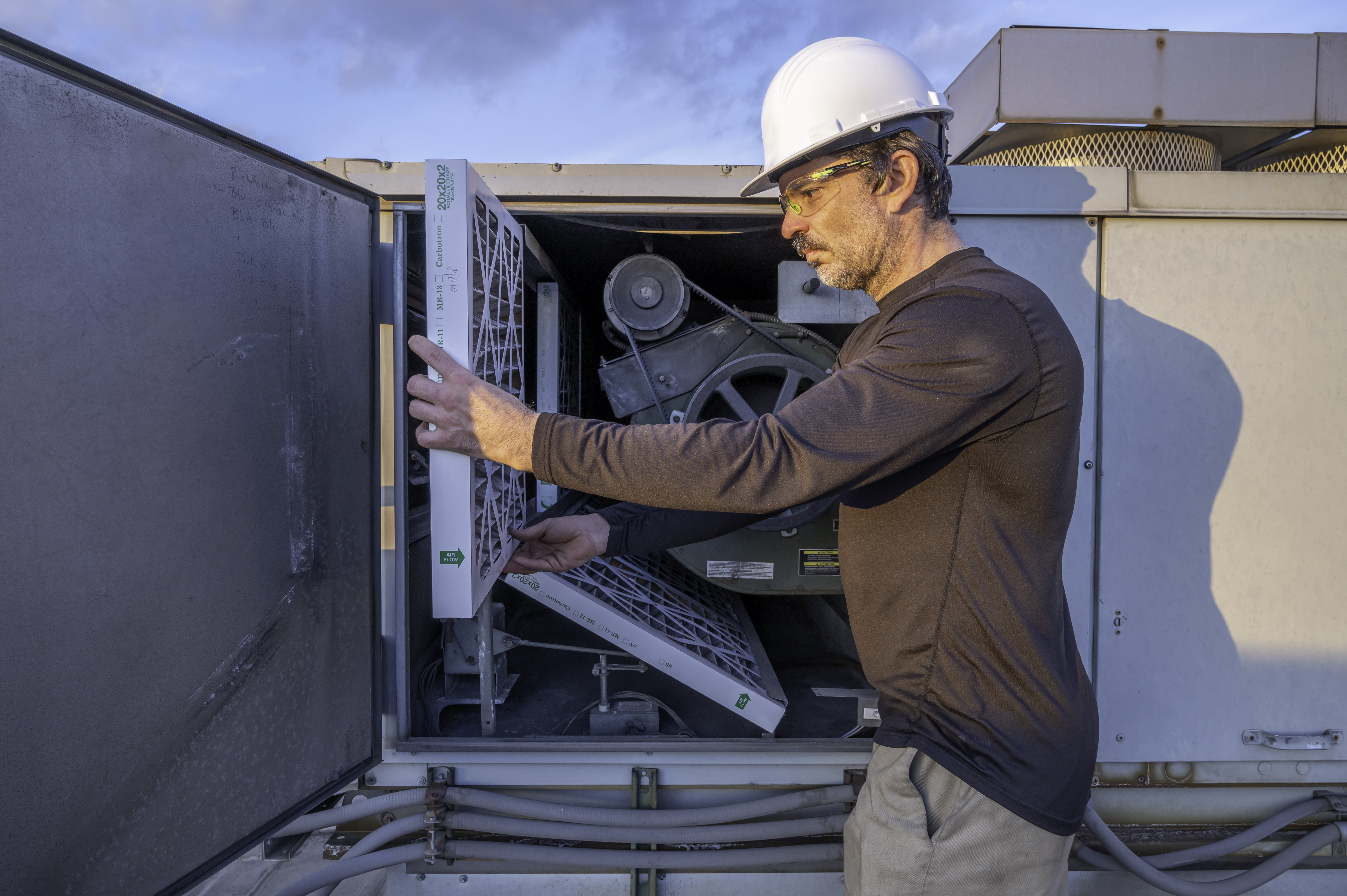
Heating and cooling system on the fritz? Discover the factors that go into HVAC repair costs and how you can save money on this crucial home update.
A boiler room is the room in a home where the boiler, furnace, HVAC, or other mechanical equipment lives
All the mechanical equipment responsible for your hot water and heating is located in the boiler room.
Boiler rooms are located in basements on an exterior wall, although they may also be found in attics, depending on local building codes.
A boiler specialist can verify if your boiler room is up to code and check safety features, such as isolation valves on all pipes, required air vents, and emergency switches.
Usually located in the basement, the boiler room is the place where mechanical equipment related to producing hot water and controlling the climate of your home resides. Most municipalities have strict building codes for boiler rooms. Learn more about what a boiler room is, what it contains, and what you need to do to keep your boiler room safe.
Well, the boiler. Some homes have a boiler to provide hot water for heating, drinkable hot water, or both. These tend to be older properties with radiators for heating rather than a forced air system.
Less commonly, homes may have a steam boiler to heat the home. With a radiant heat system, a boiler heats water close to boiling and then sends it along the connected pipework to the radiators, where it radiates into the rooms to warm them. This is a closed system, and the water within it is not fit for human consumption.
With a closed boiler system, a second piece of equipment is necessary to supply the home with potable hot water. Unless a tankless system is installed, you’ll need a standard residential water heater that shares space in the boiler room with the boiler.
In an open system, a boiler supplies water to the radiators, and also heats water when someone turns on the hot faucet at a sink or turns on the shower in the home. Then the water travels from the boiler, along the pipes, and out through the faucet. Unlike water heaters, boilers do not store hot water.
A boiler room can be anywhere within the property as long as it's up to code. The most common location is the basement, but you may also find homes with boiler rooms on the roof. Wherever they're located, boiler rooms must always be on an outside wall to allow for chimneys, vents, or intakes.
Building code requirements for boilers vary by location, so it's important you check your local regulations to make sure your boiler room complies. Often, non-compliance is identified by the local boiler specialist you'll hire to replace your old boiler. In this case, the cost to install your boiler might go up if you work with the contractor to get your boiler room up to code.
Common code regulations for boiler rooms include:
Boiler room doors need to open outwards, be self-closing, and have a good fire rating.
Boiler room ceilings and walls cannot have windows or gaps and need to be enclosed.
Where the boiler room is in fact just a basement that happens to also contain the boiler, you need to cover the boiler with fire-rated material 8 feet around.
Where a fresh air vent is necessary, the air must come directly from outside
If you have a gas-only boiler with an input of under 2 million BTU (British Thermal Unit per Hour) you need a chimney cap.
Boilers have to sit on concrete blocks, on a concrete floor, or bricks.
Hot water piping for heating and domestic use require insulation
Isolation valves on all pipes
Boiler rooms need a clearly labeled emergency switch at each door or, where your boiler is just in your basement, you have to place the switch by the stairs
These are just a few common building code requirements for domestic boiler rooms. If you're planning to install a new boiler or you're doing a boiler room renovation project, it's vital that you understand the local regulations and that you discuss this with a plumber near you so you can make sure your home is not only compliant, but safe, too.
From average costs to expert advice, get all the answers you need to get your job done.

Heating and cooling system on the fritz? Discover the factors that go into HVAC repair costs and how you can save money on this crucial home update.

Inspections are an essential part of furnace maintenance. Prevent inconvenient breakdowns by budgeting for furnace inspection costs and repairs.

Springing for HVAC maintenance costs may seem like an extra—and easy-to-ignore—item on your checklist, but it will save you money in the long run.

Wondering who to hire for swamp cooler installation? Learn when to call an HVAC contractor, electrician, or handyperson, and what to expect.

Not sure who to hire to install radiant floor heating? Learn which pros handle radiant floor heating installation and how the work comes together.

Learning how to secure a window AC unit will avoid personal injury and damage to your home. It will also protect against theft and break-ins.